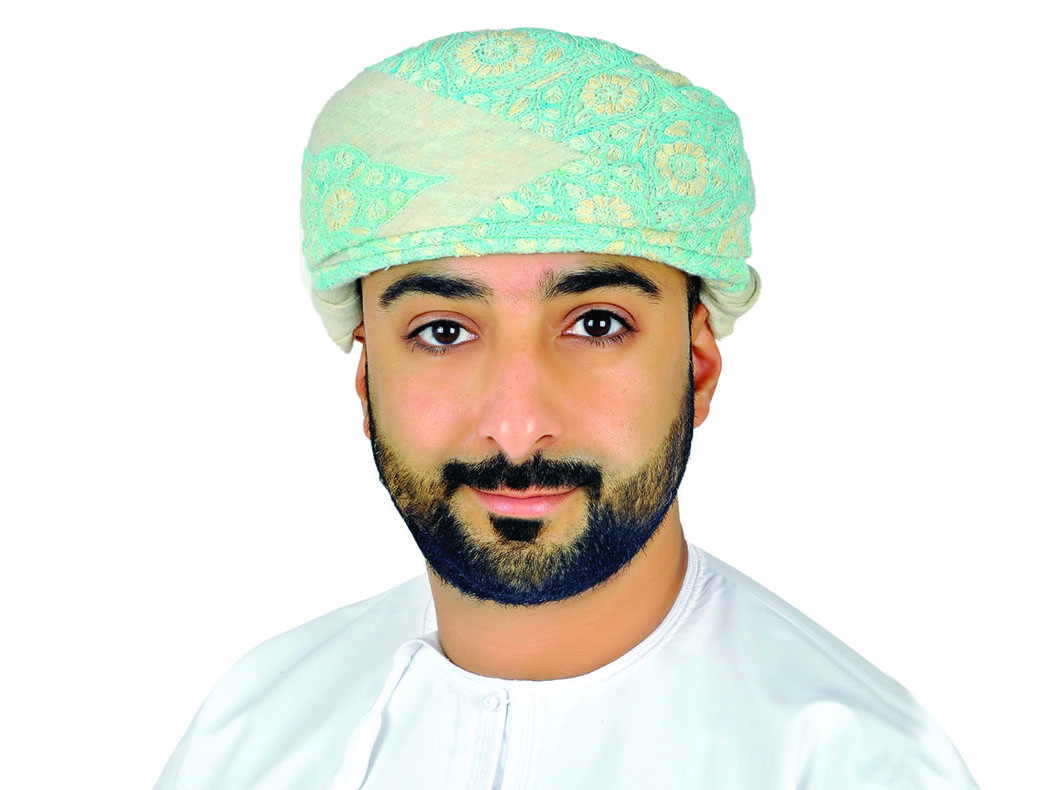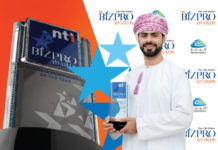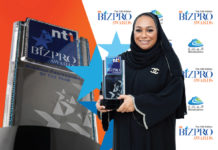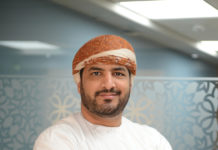Flexibility and the ability to adapt to different situations, people and environments are the key strengths of Said Ahmed Al Buali, Senior Manager – Programme Management Maisarah, BankDhofar. Muhammed Nafie reports
After completing his high school in 2001, Said Ahmed Al Buali won a full scholarship by the Ministry of Finance, enabling him to pursue an advance diploma in IT at Informatics Computer School in Singapore. During the three years he spent in Singapore, Said not only completed his diploma but improved his communication and teamwork skills and gained exposure to a multicultural working environment.
Coming back to Oman in 2004, Said started his career as an onsite support engineer at GBM. Although he left this job after one year, it helped him gain work experience as well as save some money to pursue his Bachelor’s degree at Deakin University in Australia.
The experience in Australia pushed Said to his limits. He was forced to do some casual jobs to support himself while studying. He worked in restaurants and some marketing survey centres. Balancing work and studies was very challenging, but he had managed to get through and graduate in 2008 with a Bachelor’s degree in IT.
Said’s education and experience in Australia strengthened his ability to adapt to new environments and deal with different types of people.
After his Bachelor’s, Said resumed his career by exploring a new territory outside his educational background. He joined as an interpreter at Olive Group, which was conducting a leadership competency assessment on government employees at a camp site in the middle of the desert in Al Ain, UAE. This position involved translating conversations between the participants to assess their leadership skills, instant translation of workshop sessions as well as one-to-one feedback sessions. He was able to adapt to this role and perform well, which led to his promotion as the lead interpreter and trainer. As the lead, apart from the usual activities, he also managed a team of five interpreters, trained them on how to conduct interpretations and leadership assessments. During this time, Said was given a several opportunities to conduct assessments and write reports.
After working one year as an interpreter, Said moved back to Muscat to join Information Technology Authority (ITA) as a project specialist. At this position, he mainly managed e-government awards both at the national level and internationally. This role involved managing external vendors such as consultant firms including the ‘big four’ as well as working closely with different government bodies such as A’Shura, Ministries of Finance, Education, Higher-Education, Civil Service, etc., on improving their digital services, automating manual processes, enhancing their websites/mobile apps and finally packaging their nominations for the award. Said was able to achieve over three wins for both rounds of the awards in the GCC and took part in setting the national awards criteria by researching best practices and attending seminars. Additionally, he had established a green initiative at ITA, and managed several mini projects for creating a greener environment at ITA.
Seeking new challenges
After three years working at ITA, Said decided to move to the private sector, looking for exposure to more challenging projects and aspiring to work in a more dynamic, cost-driven environment which would enhance his skills and capabilities. He joined BankDhofar as a project manager within the IT division, managing small projects and change requests, specifically related to business process management. After one year, the bank was in the process of transforming its processes and a new department which looked after all bank projects was put in place. This was the perfect place for Said to challenge himself and get to manage complex, high-budgeted projects. Therefore, he applied and moved to enterprise project management office as a project manager and began working on different system implementations across the bank such as large projects. This created an opportunity for him to get recognized and receive a promotion as senior project manager within one year. This was followed by another promotion the following year to his current role as a programme manager. As a programme manager, Said looks after the delivery of all projects under the Islamic (Maisarah) portfolio, managing a team of two senior project managers, reporting directly to the chief executive of Maisarah Islamic Banking Services and taking an active role in aligning business strategy to projects.
Flexibility and ability to adapt to different situations, people and environments are the key strengths of Said. “I am able to work well with different kinds of people to ensure that all resources, team members work towards a common goal and target. This strength has helped me succeed in any situation I have been put in, from working as an interpreter with multinational assessors, to working in a government body in Oman and finally working in an aggressive banking environment. My educational experience has also contributed to this. Studying in Singapore as well as in Australia gave me the opportunity to interact with different cultures and attitudes.”
The ability to plan has also made an impact in his career. Setting clear goals helped him put a path and direction to move. Said says his patience has also helped him overcome difficult situations. “It is important to stay clearheaded and be patient. Understand that new challenges will make us stronger, help us build our skills/knowledge and keep us grounded.”
Influencers
Throughout his career, two people have influenced him the most. The first person was his line manager at ITA, Fatima Al Riyami. “She had faith in me and trusted me with tasks above my grade, which gave me the opportunity to make decisions, present them to management as well as board members to get budget approvals, manage a team of senior consultants from vendors and communicate directly with high-profile ministry officials. Her enthusiasm and aspiration towards achieving ITA’s strategic goals of transforming the government through technology had motivated me to aspire and work on building or enhancing systems for government bodies such as ROP, Ministry of Islamic Affairs etc.
The second person who has influenced Said is his current reporting manager, CIO at Bank Dhofar, Tariq Taha. “He has made a lot of positive changes in the organisation from a strategic point as well as down to the employees under him. He has recognised my hard work and has trusted me to make decisions and act upon them. His trust has enabled me to build a strong core and deal with different levels of situations,” says Said.
He adds, “I do not have one role model that I aspire to be. However, I always look at the great qualities of the different people I come across, and work towards either building those qualities within myself or practicing them.”
The experience at Bank Dhofar has been extremely rewarding for Said. “I have aspired for a challenging and dynamic environment when I had taken this job, and that is exactly what I got,” he avers. “Every project I manage is different, and I get to deal with all sections in the bank and different levels of people, from top management to juniors. Every experience at the bank has given me something new to learn and apply at work. Some of the key things I’ve learned include working under extreme pressure, the ability to convince people to work longer hours willingly for the sake of achieving targets, looking at the big picture by stepping back, finding the root causes of the problems and finding better ways to get the final target”.
Said says his experience with NTI BizPro Awards was an eye opener to the level of talent in Oman. It has given him the drive to improve his current level of skills and raise the bar for him. However, it has also made him proud and excited that such initiatives exist in the country. “BizPro has provided a platform to interact with talented Omanis, build networks and share experiences. Whether you get selected as a winner or not, I was able to benefit from the overall experience,” he says.
He advises young Omanis to be patient, and to have short term as well as long term goals. “The short term goals or quick wins that will help motivate you and give you a sense of accomplishment. The long term goals are dreams that you strive to achieve,” he adds. “Everything is possible and hard work does pay off but it is not enough; the key is to work hard and smart. Think of where you want to be in the next five years and in the next 10 years. Plan out your steps and start working on it. Challenges and hurdles are all part of your journey. Learn from these experiences and stay focused, and don’t let hard times sway you from your goals,” he explains.
Talking about his plans for the future, Said says he plans to stay the course, and aims towards playing a bigger role in transformation. He is targeting to get opportunities to work on bigger projects that have high impact on the organisation and take an active role towards aligning these projects with the organisation’s strategic goals. “Building my knowledge base through this process will ultimately open up opportunities to higher influential roles and will enable me to achieve positive impact on the economy, creating better opportunities and developing the nation; and that is the ultimate goal,” he concludes.






